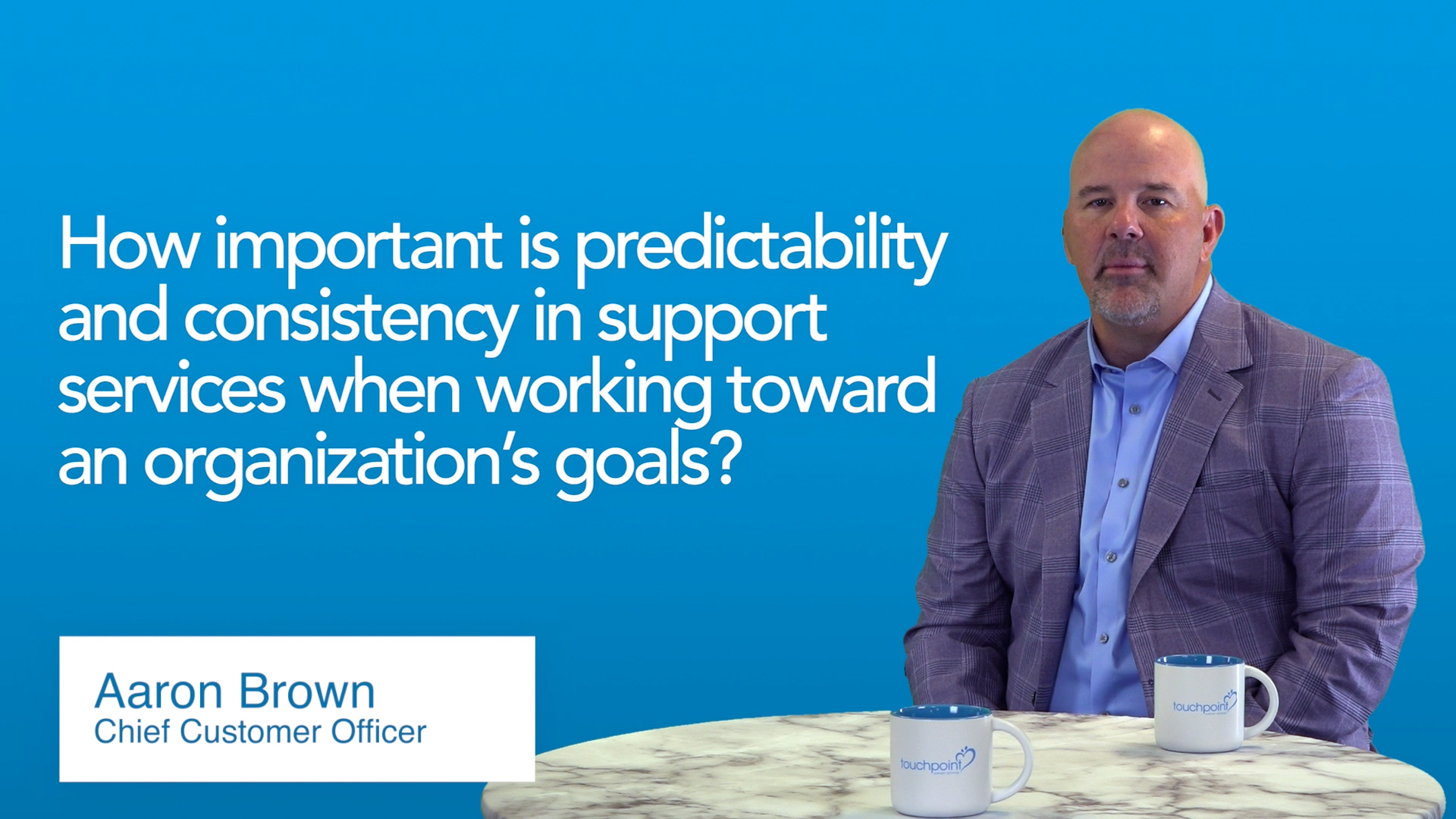Predictability is key when you’re in an environment in healthcare, and you’ve lost control of everything. I’ve been a patient. I’ve had multiple family members that are a patient. You feel at a loss, so you want predictability to feel safe because nothing that is going on with you at that point in time is in any part of your control.
Our patients need predictability. They need to know that we’re going to deliver the service on time and deliver it well. Our healthcare partners need that predictability. The nurses need to know when the tray is going to be delivered so they can give the meds to the patient. And our administrators – CEOs, COOs – they need predictability of cost. They need to know that they’re getting what they pay for.
So I think predictability is key. We love to tell our administrators that at this point, there’s no value in spending a dollar more. We’ll give them a range of where, based upon their health system, they are competitive with other health systems and at a point where there’s no return on investment. So that predictability is key in so many ways, not only to provide service, but also to provide a viable model that can exist for many days to come, with the right financial outcome.
An integrated model in healthcare is the most efficient model out there today. Have the ability of somebody who parks your car to notify patient transport to be there. Patient transport picks up that patient. It’s taken to the room that the housekeepers already know that that room needs to be ready. Housekeeping has already been notified, and then food service is already notified that somebody needs to come up and take that patient’s order. That patient may need to go on a test later that day. Food service is notified to put them on NPO, and the patient transporter knows when they need to be there, and also when they need to come back. That patient transporter can also order a meal for that patient when they’re on their way back because they haven’t eaten in a while. That ability to have everybody integrated on the same technology platform creates tremendous efficiencies, both from a cost and from a patient outcome standpoint.
There’s tons of inconsistencies in support departments. We find it a lot in self-operated departments, that a director’s been there forever, and they may be part of a large healthcare system. When we come in, and we analyze the workflow, we put in standardized processes and procedures, we measure those procedures, we find that there’s tons of inconsistencies.
We’ve taken pedometers and put them on some of our associates that were delivering patient trays. They were walking 8, 9, 10 miles a day. But when we standardize some of those processes, we were able to cut that down to 5 to 7 miles a day. So just think about the time it takes to walk that amount of time. There’s inconsistencies all throughout healthcare. It’s just the ability to find them. And in order to find them, you really need a standardized platform, which allows you to know exactly how much time each task takes.


